Genshin Impact has some of the best-written gods in the history of RPGs
Opinion | The Genshin Impact 4.2 Fontaine Archon quest delivers one of the best game stories of the year
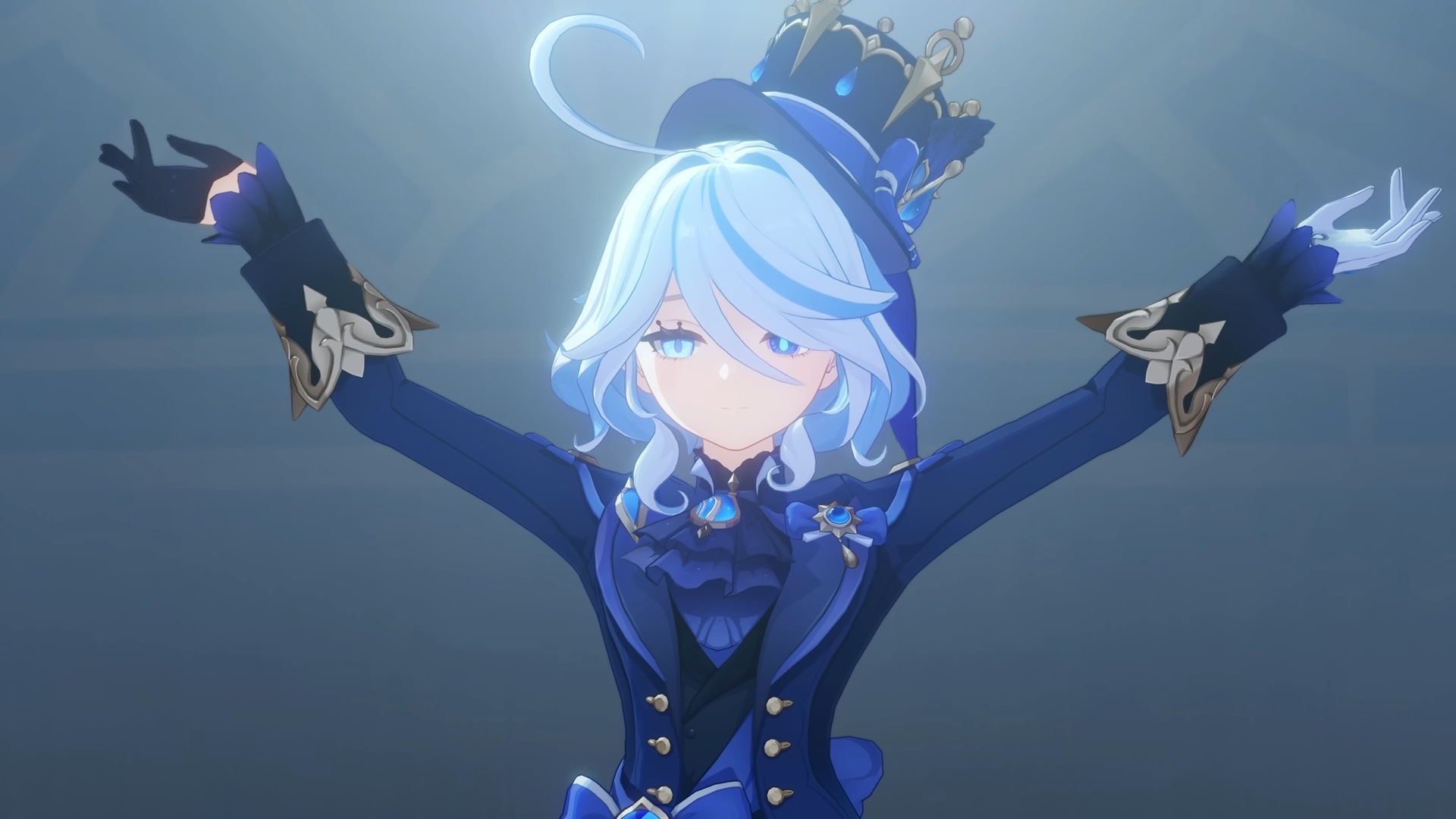
Genshin Impact frankly has no business making me remember, look up, and then re-read short stories that decade-old literature classes have embedded in my brain like philosophical sleeper agents. But here I am, hung up on Ursula K. Le Guin's 'The Ones Who Walk Away from Omelas' after clearing the new, final act of this open-world RPG's Fontaine Archon quest.
Both stories are harrowing works of forced sacrifice, but the main reason Genshin Impact's take has completely consumed my thoughts is that it's the best and latest in the RPG's many fascinating lessons in theology, which I increasingly hope other games take a page from. (By the way, I'm about to spoil the shit out of Genshin's Fontaine Archon quests, so put a bucket on your head if you don't want to see that.)
Gods in fiction
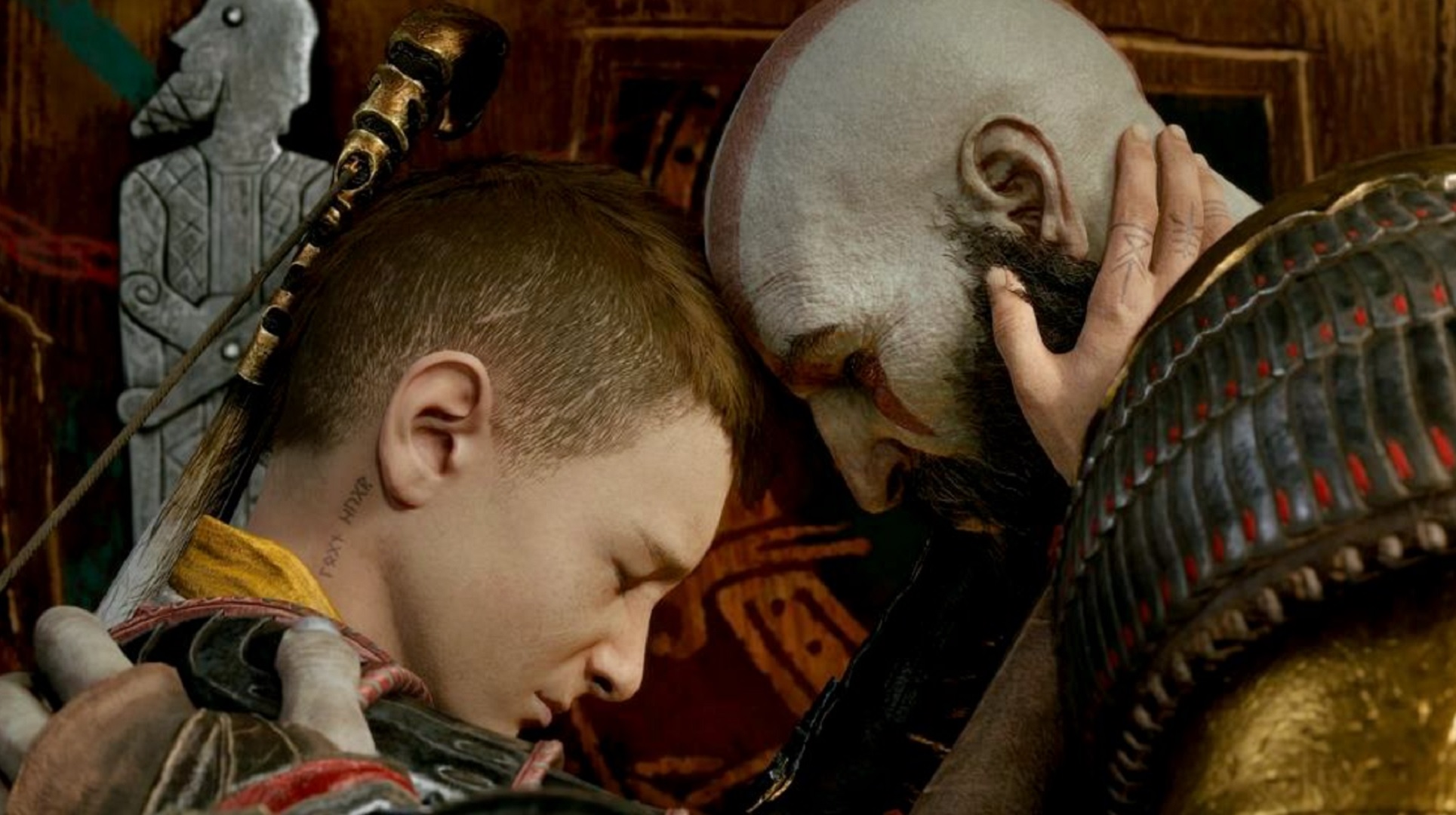
For a long time now, I've been thinking about gods in games. I've been thinking about Shin Megami Tensei 5, where god's throne is empty and begging to be seized in a show of power. I've been thinking about God of War: Ragnarok, where the biggest thing separating gods from mortals is how much time they have to make and regret mistakes. About Baldur's Gate 3, where gods are often selfish, manipulative assholes who make The Monkey's Paw look like a Windows EULA. About Destiny 2, where one god's misguidance can wreak havoc on a galaxy for eons. About Elden Ring, where gods are so easily slain by mad lads with jars on their heads and crab legs in their pockets. And most especially about Genshin Impact, a game where gods are people you can meet on the street.
Genshin Impact's mythology fascinates me, and unlike most games not just in the lore, but in day-to-day interactions. You can reach out and touch gods – visibly see their place in the world. They're provably real, and everyone sees the same god. It's a game where gods can literally be made or unmade by mortals on a whim. Gods can be flippant, wise, ruthless, naive, and desperate. Genshin's gods are not mighty because they're gods. If they're mighty at all, it's because of who they are despite their godhood, which may be more of a burden than anything. They don't intrinsically deserve the worship of mortals; in fact, they explicitly need the help of their people.
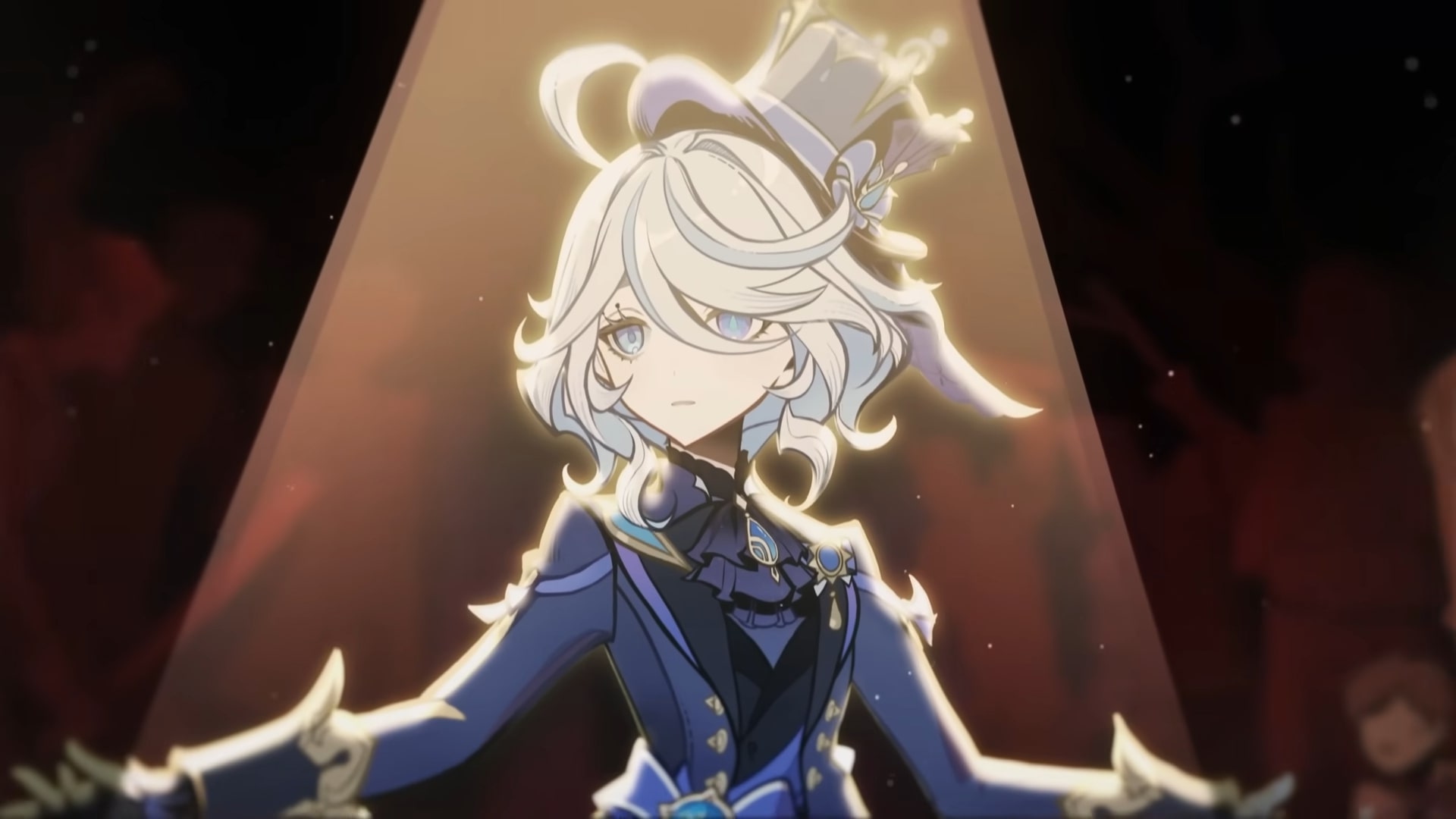
This has never been clearer than in Fontaine, the vaguely French steampunk utopia at the center of Genshin's latest updates. Fontaine's god, the Archon of Hydro, crafts and inflicts a wicked lie to deceive higher gods and upend the ugly cycle of godhood that was forced on her. But before that, we – and by we I mean the goblins pounding on the windshield of my brain – have to talk about Omelas.
I'll spare you the literature class. The important thing to know is that Omelas is a wondrous city offering luxuries beyond the dreams of avarice – for all but one person, a child. That child must be miserable, isolated, and deprived at all times, for their unhappiness is a metaphorical battery for Omelas. If they were saved, lifted out of the loneliness and longing that is their entire existence, the whole city would crumble. Everyone in Omelas knows this, and most choose to simply ignore it and live their days in luxury – but some, you may have guessed, walk away from the city.
The Hydro Archon Furina is to Fontaine what that nameless kid is to Omelas, almost shockingly one-to-one. If anything, she might be worse off, because her suffering is unending, undefined, unrecognized, and unappreciated. (Though I very much doubt the Omelas kid would be happy to hear they are appreciated.) But before that, we have to talk about Focalors and Furina, the two faces of Fontaine's god.
Weekly digests, tales from the communities you love, and more
The Hydro Archons
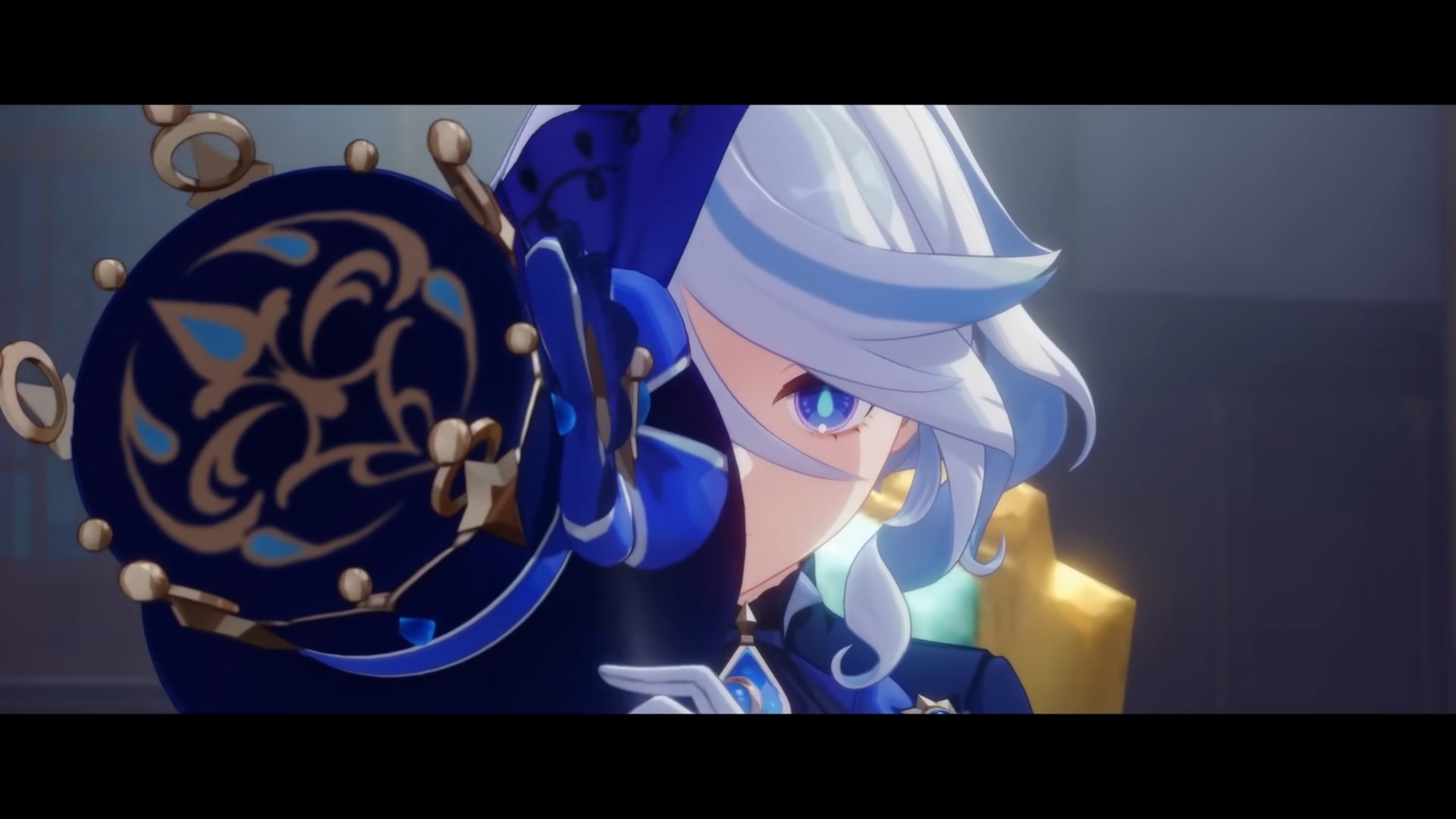
Furina is the being you meet when you visit Fontaine. She's the god of the city, and the talk of the town. She's bratty, haughty, surprisingly secular, and larger-than-life. And as we've just learned in the regional quest's final act, she's also a piteous fraud. Furina, as some other characters had recently begun to suspect, is no god. Not really. She's the human incarnation of Focalors, the actual deity working behind the scenes. Focalors separated her humanity and divinity, leaving Furina with the former – and nothing else aside from spotty memories and centuries of sorrow.
Again, I'll spare you the literature lesson, or – let's be honest – at least as best I can. The short version, to get us all on the same page, is that Focalors didn't really want to be a god in the first place, let alone crown a new god who'd follow her. She wanted to end the throne of the Hydro Archon, but without condemning the citizens of Fontaine, the spirits-turned-humans created by the previous Archon who pissed off the supreme gods with her alleged heresy.
To pull this off and deceive those supreme gods – Teyvat's Heavenly Principles (don't worry about it) – Focalors had Furina act as her stand-in in the human world while she gathered the strength she'd need to end her own existence. This would return the power of the Hydro Archon to the Dragon Sovereign (don't worry about it) that it was, uh, borrowed from. And this went on for 501 years. It's an unthinkable amount of time for a life, but Genshin conveys the weight of it by painstakingly showing us its corrosive effects, not idly telling us it was really hard, which is the trap so many stories fall into.
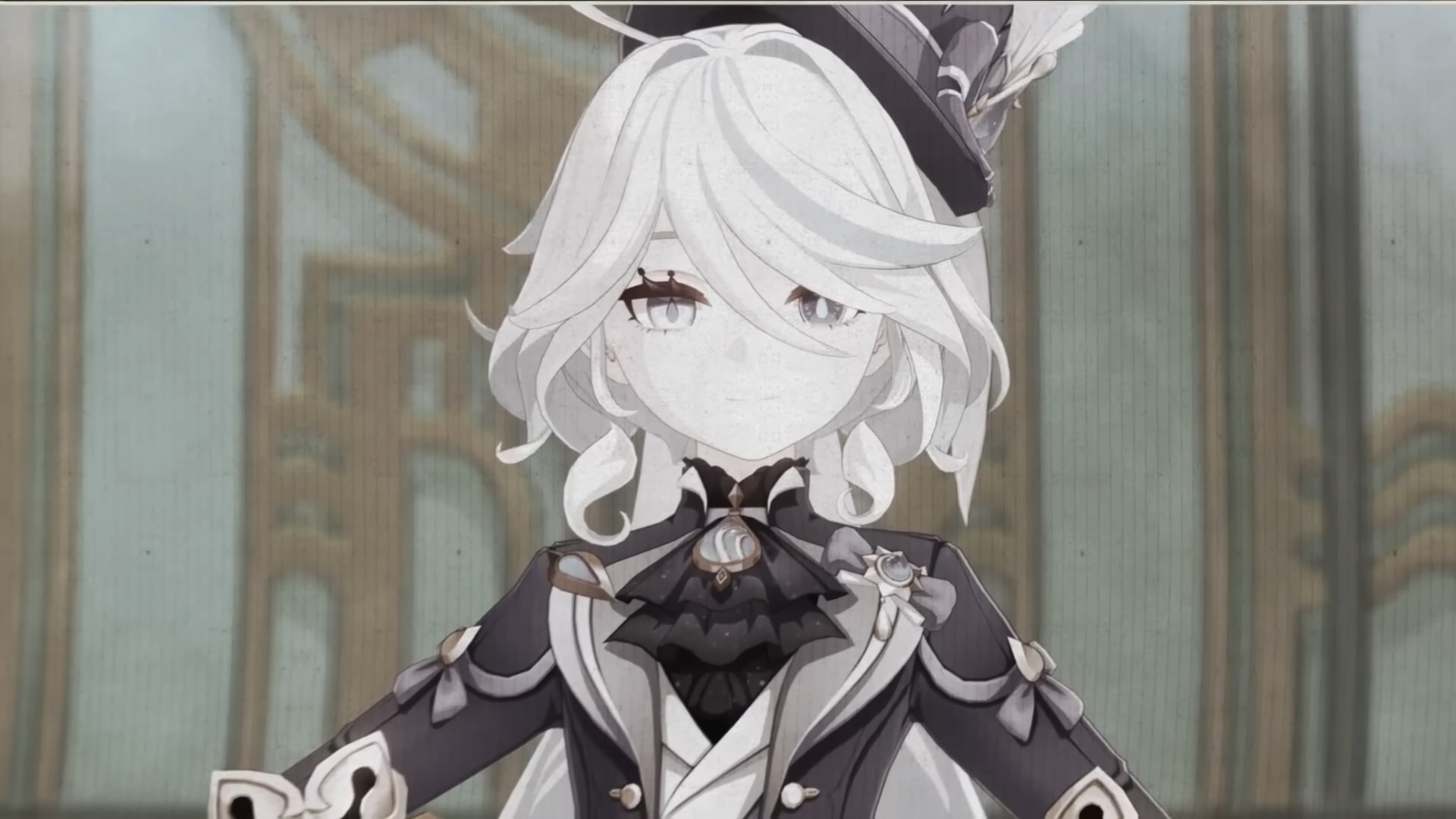
Furina was not born or raised like a normal human, but she basically is one except she doesn't age. She doesn't have the wisdom or hardiness or powers of a god. Most importantly, she doesn't have the mind of a god, and the conceit of her story is that the human mind is not equipped for centuries of isolation. Furina, it turns out, is not built different. By the time we meet her, her spirit is so far past broken that she doesn't know who she is. She's been acting for so long that her real self was long ago forgotten by everyone, including her.
All Furina knows is that she has to live as the Hydro Archon to keep the balance. Her nebulous other self assures her that her service will end one day, but she doesn't know when. All she can do is stick it out for tomorrow's sake, putting up this front of commanding bravado while researching the origins of the Archon she's supposed to be, and the accompanying doom prophesied for Fontaine's citizens. She positively cannot confide in anyone. If her mask slips, the whole thing could come crashing down – Focalors' plan ruined, her own plight wasted, Fontaine's populous obliterated. So she lies and lies and lies, and the pressure drives her half-mad. There's a heated moment where she fears she has failed everyone and wasted everything she's endured, and her abject emptiness cuts to the bone.
What it means to be god
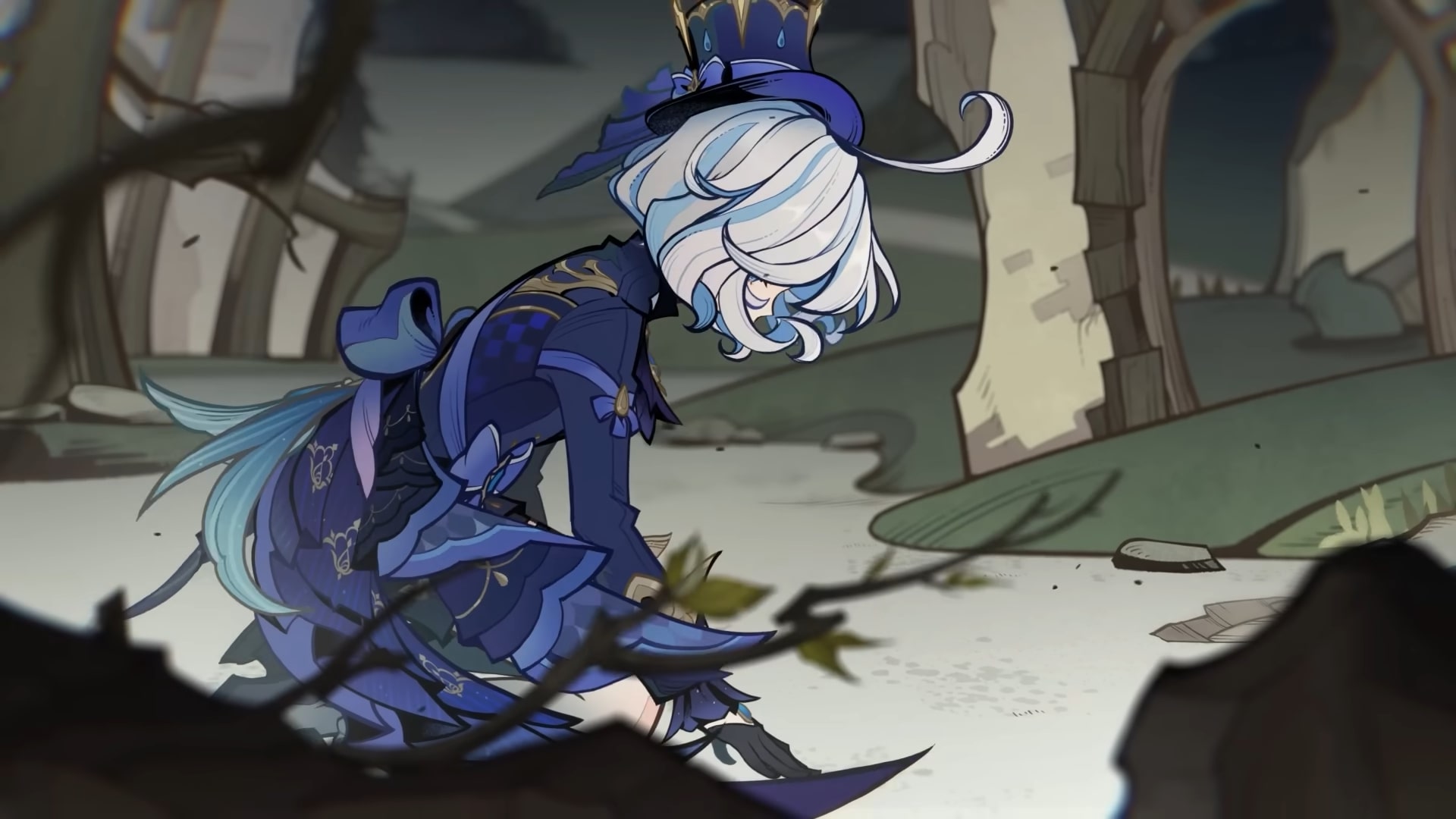
There's a flashback where you see Furina first reigned in as the Hydro Archon, and it's become one of my favorite scenes in any game. Her inauguration speech is soft-spoken and heartfelt, a come-together cry asking the people of Fontaine for their support. That's Furina. That's the girl who everyone's forgotten. But that's not what the people want or expect from their new god. They want unshaking absolutes that they can trust and follow absolutely. Terrified that she's fumbled the ball at the first yard, Furina rushes to cover up her tender mortal heart, playing up the bluster and lovable arrogance that she's known for in the present. Furina starts as she means to go on: living every waking moment on a tightrope of dishonesty suspended over inconceivable threats that she didn't ask for or deserve. For 501 years.
Like the citizens of Omelas, Focalors condemned Furina to this because it was deemed necessary. Unlike the citizens of Omelas, the people of Fontaine don't know that Furina is miserable. They think she's happy! They accept her as a true god for 500 years. She is their god precisely because they believe she is. In a world where you can reach out and touch gods, Furina must get by on raw faith. Fontainians assume she's happy and perfect. She's a beloved celebrity! Why wouldn't she be happy? And this makes the performance infinitely harder to maintain.
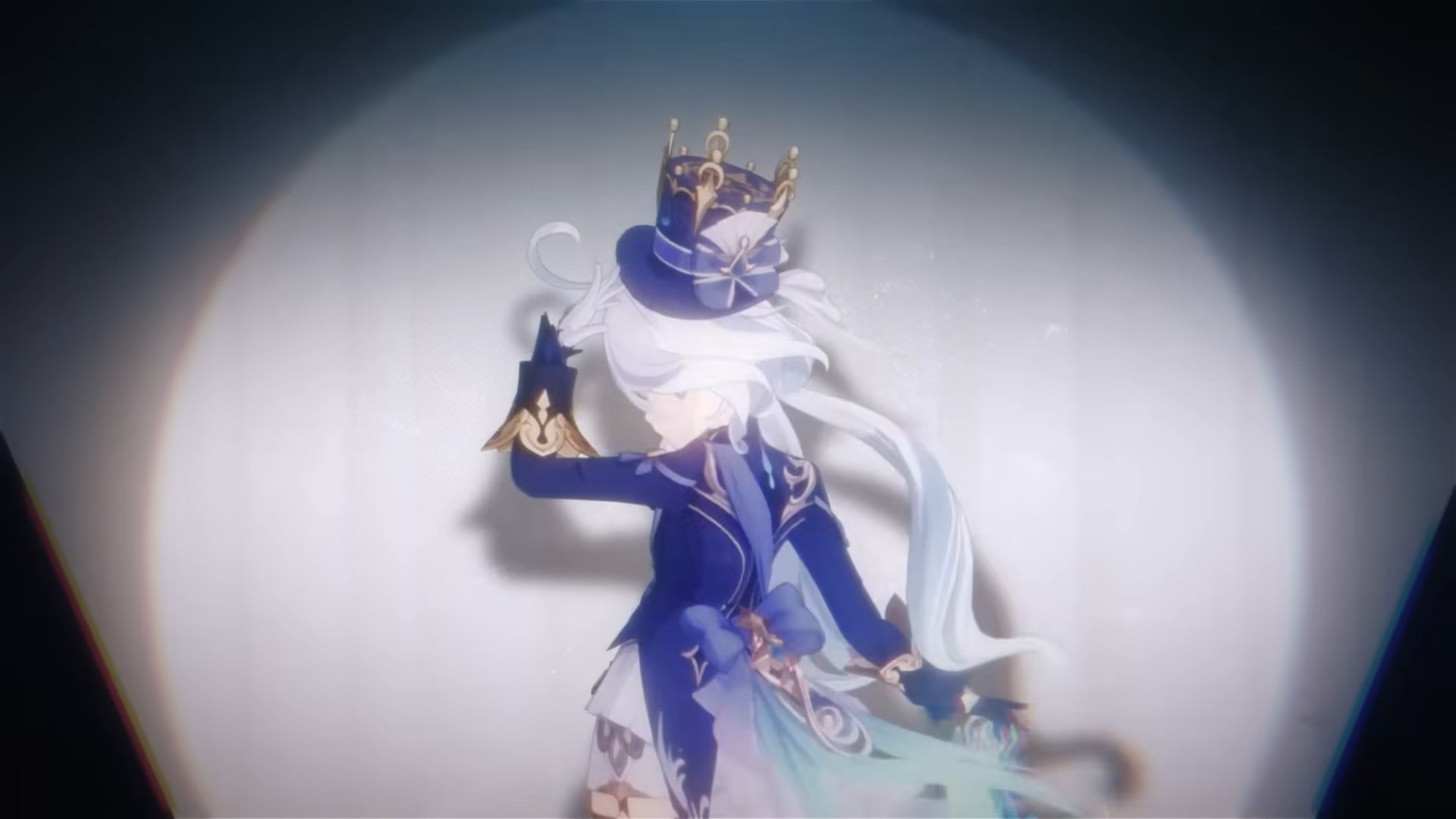
What does Furina get for all this? Mercifully, her watch does eventually end. It's a bittersweet finale for her, but a happy ending for Fontaine – much better than anything Omelas could hope for, that's for sure. Her personal quest brings a better, more poignant – achingly poignant – sense of closure, but it's Furina's reaction to her long-awaited relief that's stuck with me. 501 years of exponential misery, and what does she do when it's all over? Hole up at home to cry and eat macaroni and cheese. This is peak fiction, folks. That is exactly what I would do.
This is what awaits a god in this game, and for my money it's a damn good story about the too-often-boring divine. Genshin knows the secret ingredient: how do you make gods interesting? You make them human. And Furina is not the only example of this. If I write another 1,400 words about the other Archons my editors will throttle me, so I'll just say that Furina's story is neck-and-neck with the Dendro Archon Nahida, a true but incredibly young god overlooked by the people she wants to save.
Nahida set a new standard for Genshin Impact's storytelling, and it's been an absolute pleasure to see Furina's arc match and at times even surpass it. When it comes to games, I'm a gameplay-first person. Hell, I'm a gameplay-first-second-and-third person. I have never clung to a game's story like this, but I positively cannot wait to see where Genshin goes, and that's almost entirely because it does gods better than the vast majority of RPGs.

Austin has been a game journalist for 12 years, having freelanced for the likes of PC Gamer, Eurogamer, IGN, Sports Illustrated, and more while finishing his journalism degree. He's been with GamesRadar+ since 2019. They've yet to realize his position is a cover for his career-spanning Destiny column, and he's kept the ruse going with a lot of news and the occasional feature, all while playing as many roguelikes as possible.


